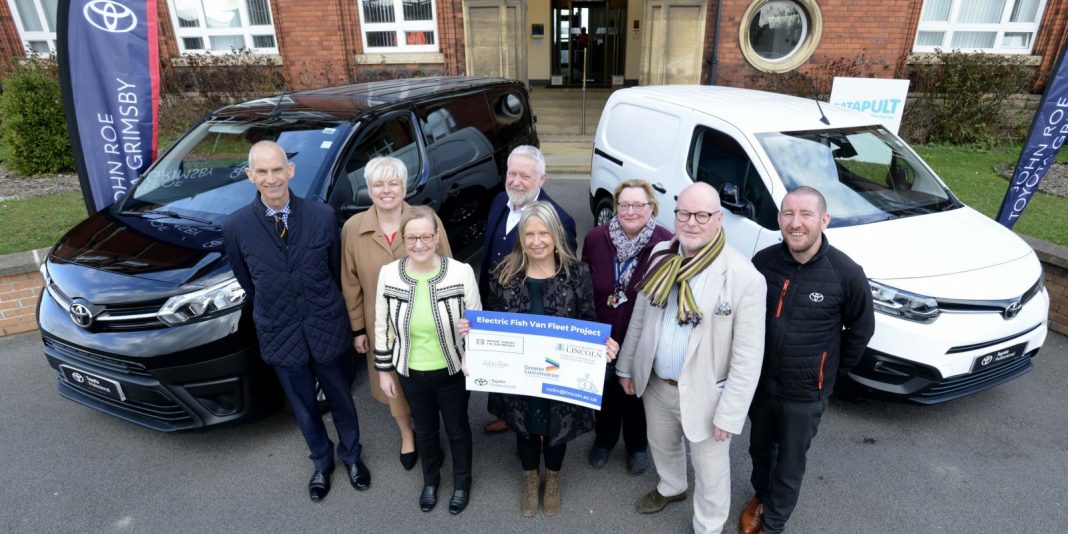The sustainable transport of seafood in the UK took a major step forward last week at the launch event to celebrate the electrification pilot of Grimsby’s fish van fleet.
The project, led by the University of Lincoln’s National Centre for Food Manufacturing and the Seafood Grimsby and Humber Alliance, will trial electric vans for fish delivery around the country – work currently involving more than 100 conventional vehicles.
It is being supported and funded by the Greater Lincolnshire Local Enterprise Partnership, UK Government and Toyota UK.
The vans currently used by Grimsby are estimated to have an annual carbon footprint of 2,000 tonnes of CO2, and the project aims to reduce this for at least 10 vans through the length of the pilot scheme.
Val Braybrooks, Dean of the National Centre for Food Manufacturing said: “The Grimsby seafood processing cluster is the largest in UK and makes a significant contribution to the UK agrifood industry, and it is encouraging to see it leading the way in terms of sustainability and carbon reduction.
“The NCFM will oversee the project, monitor the carbon impact and assess the cost effectiveness of the full transition to Electric Vehicles.
“In addition to this, we will be looking at innovation and knowledge exchange. This will include how the vans perform in terms of carbon reduction and economic savings and what could be done to increase the wider take-up of electric vehicles for food delivery. We hope that the success of this project will encourage the wider use of electric vehicles across many more food delivery businesses nationwide.”
The Toyota vans being used in the pilot are listed for sale new at around £40,000, but with a Government EV Grant and support from Greater Lincolnshire LEP and Toyota UK, this is reduced significantly for businesses participating in the project.
Halina Davies, Partnerships and Programmes Executive Manager at the Greater Lincolnshire LEP said: “Greater Lincolnshire is the UK’s Food Valley – one of our game-changing sectors for growth across Lincolnshire. The decarbonisation of the food sector and its logistics chain is a strategic priority for us, and therefore we are delighted to be adding to the suite of projects we are funding for UK Food Valley with the seafood pilot scheme.
“The Grimsby seafood processing cluster is the largest seafood processing and trading cluster in Europe, employing at least 6,000 people with a further 12,000 in the supply chain. However, the cluster is reliant on traditional diesel engine and electrical refrigeration systems which, because of rising energy costs, emissions challenges, sustainability, and carbon net zero agendas, will be under increasing pressure as the UK strives to meet its 2050 decarbonisation goals.”



